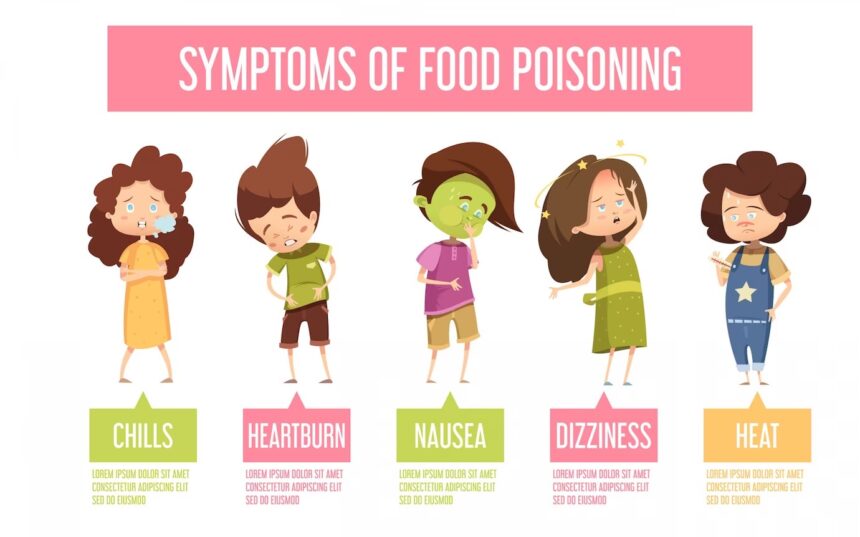Food poisoning is a common and unpleasant condition that occurs when contaminated food or beverages are consumed. In South Africa, where culinary diversity is celebrated, it is essential to be aware of the symptoms of food poisoning to identify and address the issue promptly. Recognizing the signs can help individuals seek appropriate medical care, prevent the spread of illness, and promote food safety practices. In this article, we will discuss the common symptoms of food poisoning in South Africa, the potential causes, and steps to take if you suspect you have been affected.
- Gastrointestinal Symptoms: The most common symptoms of food poisoning involve the gastrointestinal system. These may include nausea, vomiting, stomach cramps, and diarrhea. The onset of these symptoms can vary depending on the type of contaminant and may occur within a few hours to several days after consuming the contaminated food.
- Fever and Chills: In some cases of food poisoning, individuals may experience fever and chills. This typically occurs when the contamination is caused by bacteria, such as Salmonella or Campylobacter. If you develop a high temperature, accompanied by other gastrointestinal symptoms, it is important to seek medical attention.
- Abdominal Pain: Severe abdominal pain is a symptom that can accompany food poisoning. The pain may be cramp-like and localized in the stomach area. It can range from mild discomfort to intense pain, depending on the severity of the infection and the individual’s sensitivity.
- Dehydration: Food poisoning can lead to dehydration due to the loss of fluids through vomiting and diarrhea. Symptoms of dehydration include dry mouth, extreme thirst, decreased urination, fatigue, and dizziness. It is crucial to replenish lost fluids by drinking water, electrolyte-rich beverages, or oral rehydration solutions.
- Muscle Aches and Weakness: In some cases, individuals with food poisoning may experience muscle aches and weakness. This can be a result of the body’s response to toxins produced by bacteria or other contaminants in the food. Rest and adequate hydration are important for recovery.
- Headache and Fatigue: Headaches and fatigue are common symptoms that may accompany food poisoning. These symptoms can be caused by the body’s immune response to the infection or as a result of dehydration. Rest, proper hydration, and over-the-counter pain relievers can help alleviate these symptoms.
- Duration and Severity: The duration and severity of food poisoning symptoms can vary depending on the type and amount of contaminated food consumed, as well as individual factors. In most cases, symptoms resolve within a few days to a week. However, if symptoms persist, worsen, or are accompanied by severe abdominal pain, bloody stools, or high fever, medical attention should be sought immediately.
- Seeking Medical Attention: If you suspect you have food poisoning and experience severe symptoms or prolonged illness, it is important to consult a healthcare professional. They can provide a proper diagnosis, offer treatment recommendations, and help prevent potential complications.
Preventing Food Poisoning: While recognizing the symptoms of food poisoning is crucial, it is equally important to practice preventive measures to reduce the risk of contamination. This includes:
- Properly storing and refrigerating perishable foods.
- Thoroughly washing fruits and vegetables before consumption.
- Cooking foods at appropriate temperatures to kill bacteria.
- Avoiding cross-contamination by separating raw and cooked foods.
- Practicing good hand hygiene before handling food.
Recognizing the symptoms of food poisoning is essential for early intervention, seeking appropriate medical care, and preventing the spread of illness. By being aware of the gastrointestinal symptoms, fever, chills, abdominal pain, dehydration, muscle aches, weakness, headaches, and fatigue associated with food poisoning, individuals in South Africa can take necessary steps to ensure their well-being and promote food safety practices. Remember to seek medical attention if symptoms are severe or persist for an extended period, and prioritize preventive measures to reduce the risk of foodborne illnesses.










